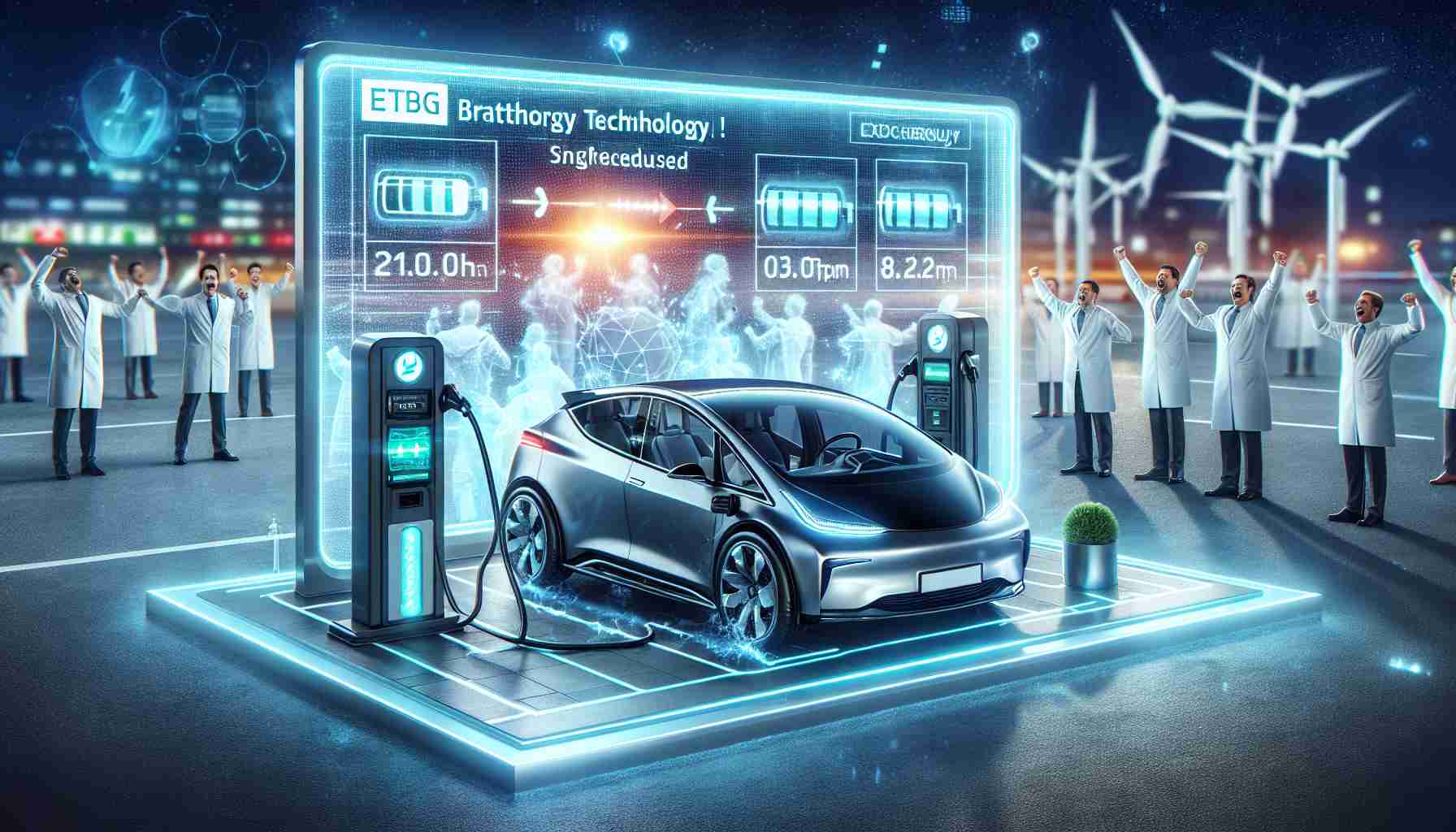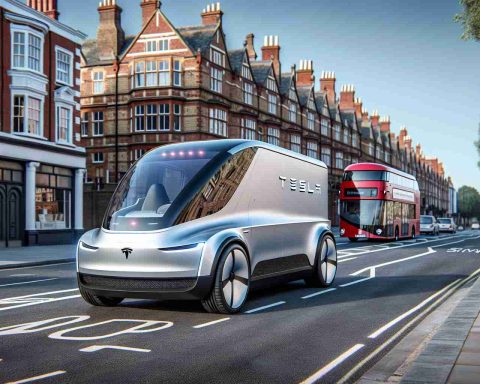Revolutionary Battery Technology Set to Transform EV Market
Exciting developments are on the horizon with a game-changing partnership between Stellantis and Zeta Energy, promising to boost electric vehicle (EV) charging speeds by an impressive 50% and reduce battery pack costs significantly. This collaboration, combining the strengths of Stellantis—known for brands like Jeep and Dodge—with the innovative approach of Zeta Energy, a lithium-sulfur battery developer, aims to reshape the future of EV technology.
The two companies anticipate ramping up production by the end of the decade. The new lithium-sulfur batteries, made primarily from sulfur, are expected to outperform traditional lithium-ion batteries. Sulfur is not only more cost-effective but also allows for greater energy density, making these new packs lighter while delivering the same usable energy.
In addition to enhancing performance and charging efficiency, this initiative could lead to more affordable electric vehicles, enabling a wider audience to transition to green alternatives. The manufacturing process promises to be eco-friendlier, utilizing waste materials and methane, cutting down CO2 emissions significantly compared to current production practices reliant on nonrenewable resources.
With global concerns over emissions and climate change mounting, developments like these from Stellantis and Zeta Energy could be key to advancing sustainable transportation, providing the world with cleaner, more efficient battery options. Stay tuned for these technological advancements that aim to change the landscape of electric mobility forever.
The Holistic Impact of Revolutionary Battery Technology
The partnership between Stellantis and Zeta Energy represents more than just a leap in battery technology; it signals a profound shift in societal norms and the global economy. As electric vehicles become more accessible through reduced costs and faster charging capabilities, there is potential for a dramatic increase in EV adoption. This transition could reshape urban planning, with cities investing in expanded infrastructure to accommodate a growing fleet of electric vehicles. In many metropolitan areas, the prevalence of green transport could lead to a cultural reevaluation of mobility, encouraging alternatives to car travel, such as cycling and walking.
The implications for the global economy are equally significant. Cheaper and more efficient batteries can bolster the EV market, potentially eclipsing fossil fuel-dependent sectors. This shift may create new jobs in clean technology sectors while disadvantaging traditional automobile manufacturing and fossil fuels. Furthermore, lithium-sulfur batteries can decrease reliance on rare earth minerals, addressing supply chain vulnerabilities and promoting resource sustainability.
On an environmental level, increasing the production of lithium-sulfur batteries could drastically reduce the carbon footprint associated with battery manufacturing. With production grounded in eco-friendly practices—like utilizing waste materials and methane—the transition could help mitigate the effects of climate change. As we witness this technological evolution, we must consider not only the immediate advantages but also long-term sustainability goals that align with global climate agreements.
Revolutionizing Electric Vehicles: The Rise of Lithium-Sulfur Battery Technology
Breakthrough Partnership to Accelerate EV Battery Innovations
The electric vehicle (EV) market is on the brink of a technological revolution as Stellantis, a major automotive player behind renowned brands like Jeep and Dodge, forms a strategic alliance with Zeta Energy, an innovator in battery technology. This partnership is set to transform the landscape of EV batteries with substantial improvements in charging speeds and cost efficiency.
Key Features of the New Lithium-Sulfur Batteries
1. Enhanced Charging Speed: The collaboration promises a remarkable 50% increase in charging speed compared to traditional lithium-ion batteries, significantly reducing wait times for EV users.
2. Cost Reduction: The new battery packs are anticipated to be more affordable, thanks to the lower cost of sulfur as a primary material, making EV ownership more accessible to a broader audience.
3. Improved Energy Density: Lithium-sulfur batteries are expected to offer a greater energy density than lithium-ion counterparts, which means lighter battery packs that can retain the same amount of usable energy.
4. Eco-Friendly Manufacturing: The production of these batteries is designed to be more sustainable. By utilizing waste materials and methane, the manufacturing process can cut down CO2 emissions substantially when compared to traditional battery manufacturing.
Advantages and Limitations
Pros:
– Significantly reduced charging times could enhance consumer convenience.
– Lower battery production costs may lead to more competitive pricing for EVs.
– Sustainability in manufacturing aligns with global goals for green energy and reduced emissions.
Cons:
– Lithium-sulfur technology is still under development, and initial commercial applications might face challenges in scalability.
– There might be technical hurdles in terms of lifecycle longevity and performance under various conditions compared to well-established lithium-ion technologies.
Market Trends and Insights
As global emissions regulations become more stringent and consumer demand for green vehicles rises, innovations like the lithium-sulfur batteries by Stellantis and Zeta Energy will likely drive the future of electric mobility. This shift aligns with broader market trends emphasizing sustainability and cost-effectiveness, which are critical for widespread EV adoption.
Predictions for the Future of EV Batteries
Industry experts forecast that by the end of the decade, lithium-sulfur battery technology could potentially dominate the EV market. Its impact may lead to a significant uptick in electric vehicle sales, particularly as manufacturers are pressed to meet sustainability targets and consumers increasingly seek efficient, eco-friendly transportation options.
Conclusion
The partnership between Stellantis and Zeta Energy represents a pivotal moment in the evolution of battery technology and electric vehicles as a whole. By focusing on innovative, sustainable practices and advancing battery efficiency, they are not only improving the viability of EVs but also contributing to a greener planet. For further updates on this revolutionary battery technology, visit the official pages of Stellantis and Zeta Energy.

















